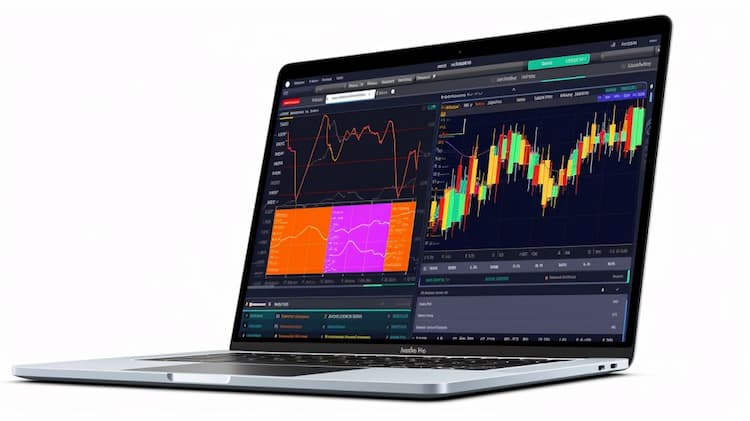
The best AI ETFs | Comparing AI ETFs
If you're looking to invest in artificial intelligence (AI) and capitalize on its potential for growth, AI exchange-traded funds (ETFs) can be an excellent option. AI ETFs provide investors with diversified exposure to companies at the forefront of AI technology, allowing them to participate in this rapidly expanding sector. In this article, we will explore some of the best AI ETFs available in the market, offering insights into their performance, holdings, and investment strategies.
Understanding AI ETFs
Artificial Intelligence (AI) has become a driving force in various industries, including finance. Investors looking to capitalize on the growth of AI can consider investing in AI-focused exchange-traded funds (ETFs). These ETFs provide exposure to companies involved in developing and utilizing AI technologies. By investing in AI ETFs, investors can gain diversified exposure to this transformative sector.
Comparing AI ETFs:
One notable AI ETF is AIQ. This ETF aims to track the performance of an index composed of companies involved in the development and implementation of AI technologies. It includes companies from various sectors, such as information technology, healthcare, and consumer discretionary. AIQ provides investors with a way to gain exposure to the potential growth of AI across multiple industries.
When comparing AIQ with other similar AI ETFs, investors should consider factors such as expense ratios, holdings, performance, and fund size. By analyzing these aspects, investors can make informed decisions about which AI ETF aligns best with their investment goals.
 AIQ overlap What are the best AI ETFs?
AIQ overlap What are the best AI ETFs?
Benefits of Investing in AI ETFs
Investing in AI ETFs offers several advantages. Firstly, these ETFs provide diversification by holding a basket of AI-focused companies. This diversification helps mitigate risk associated with investing in individual stocks. Secondly, AI ETFs provide exposure to a rapidly growing industry, as AI technologies continue to revolutionize various sectors. Additionally, AI ETFs can offer investors access to cutting-edge technologies and innovations that have the potential for substantial growth.
Considerations When Investing in AI ETFs
While AI ETFs can be an attractive investment option, it is essential to consider certain factors before investing. Investors should assess the ETF's expense ratio, which represents the annual cost of owning the fund. Lower expense ratios are generally more favorable for investors as they reduce the drag on returns. Additionally, investors should evaluate the ETF's holdings to understand the composition and concentration of AI-related companies within the fund.
Conclusion
Investing in AI ETFs provides a unique opportunity to participate in the growth of AI technologies across various industries. AIQ is one example of an AI ETF that offers exposure to this transformative sector. However, it is crucial for investors to conduct thorough research and consider their investment objectives before investing in any ETF.
Disclaimer: This article is for informational purposes only and does not constitute investment advice. The mentioned ETFs are provided as examples and do not constitute a recommendation. Investors should conduct their own research and consult with a financial advisor before making any investment decisions.
Sources:
https://www.trackinsight.com AIEQ ETF issuer
https://www.trackinsight.com/en/fund/AIEQ AIEQ ETF official page
FAQ
What are AI ETFs?
AI ETFs, or Artificial Intelligence Exchange-Traded Funds, are investment funds that focus on companies involved in the development, utilization, or application of artificial intelligence technologies.
What are some popular AI ETFs?
Some popular AI ETFs include the Global X Robotics & Artificial Intelligence ETF (BOTZ), the ARK Autonomous Technology & Robotics ETF (ARKQ), and the iShares Robotics and Artificial Intelligence ETF (IRBO).
What is the investment strategy of AI ETFs?
AI ETFs typically invest in companies that are engaged in robotics, automation, machine learning, natural language processing, and other AI-related areas. These ETFs aim to capture the potential growth and innovation in the AI sector.
How do AI ETFs provide exposure to the AI sector?
AI ETFs provide exposure to the AI sector by investing in a diversified portfolio of stocks of companies involved in AI technologies. They may include companies that develop AI software, manufacture AI hardware, or use AI extensively in their operations.
What are the advantages of investing in AI ETFs?
Investing in AI ETFs offers investors the opportunity to gain exposure to a rapidly growing and transformative sector. AI ETFs provide diversification across multiple companies within the AI industry, reducing the risk associated with investing in individual stocks.





